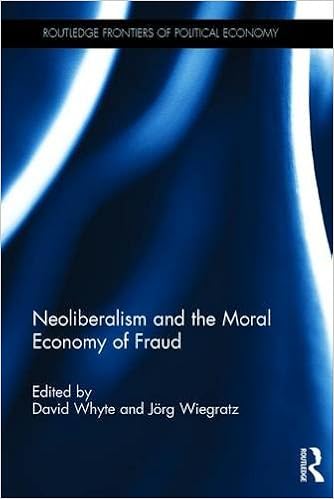Corporate fraud has become normalised in modern society – including allegations against Volkswagen, one of the top global brands in motoring, HSBC in global banking and Rolls Royce in aerospace: the list goes on. The rot at the top of the finance industry, a key sector in modern business enterprise, has ceased to abate, even after the 2008 crash. In their latest book, Neoliberalism and the Moral Economy of Fraud, editors David Whyte and Jörg Wiegratz focus on the moral conditions and culture that have enabled fraud to become the new norm in society. In short, the book studies the ‘neo-liberalisation of fraud’.
There is ample evidence about the growth and power of multinational corporations, and also the fundamental cracks and weaknesses in both local and global regulation of these profit-oriented enterprises. However, the authors argue that research on the culture of fraud and its justification within neo-liberal government and corporations is scant. Given the thousands of business schools and research faculties all over the world studying business, this gap is highly surprising. If business education has itself been captured by neo-liberal capitalism, then instead of challenging the immorality of fraud, it can become an engine for shaping greed, irresponsibility and corruption. Many are questioning their very purpose and the damage inflicted on the world. (more...)


No comments:
Post a Comment